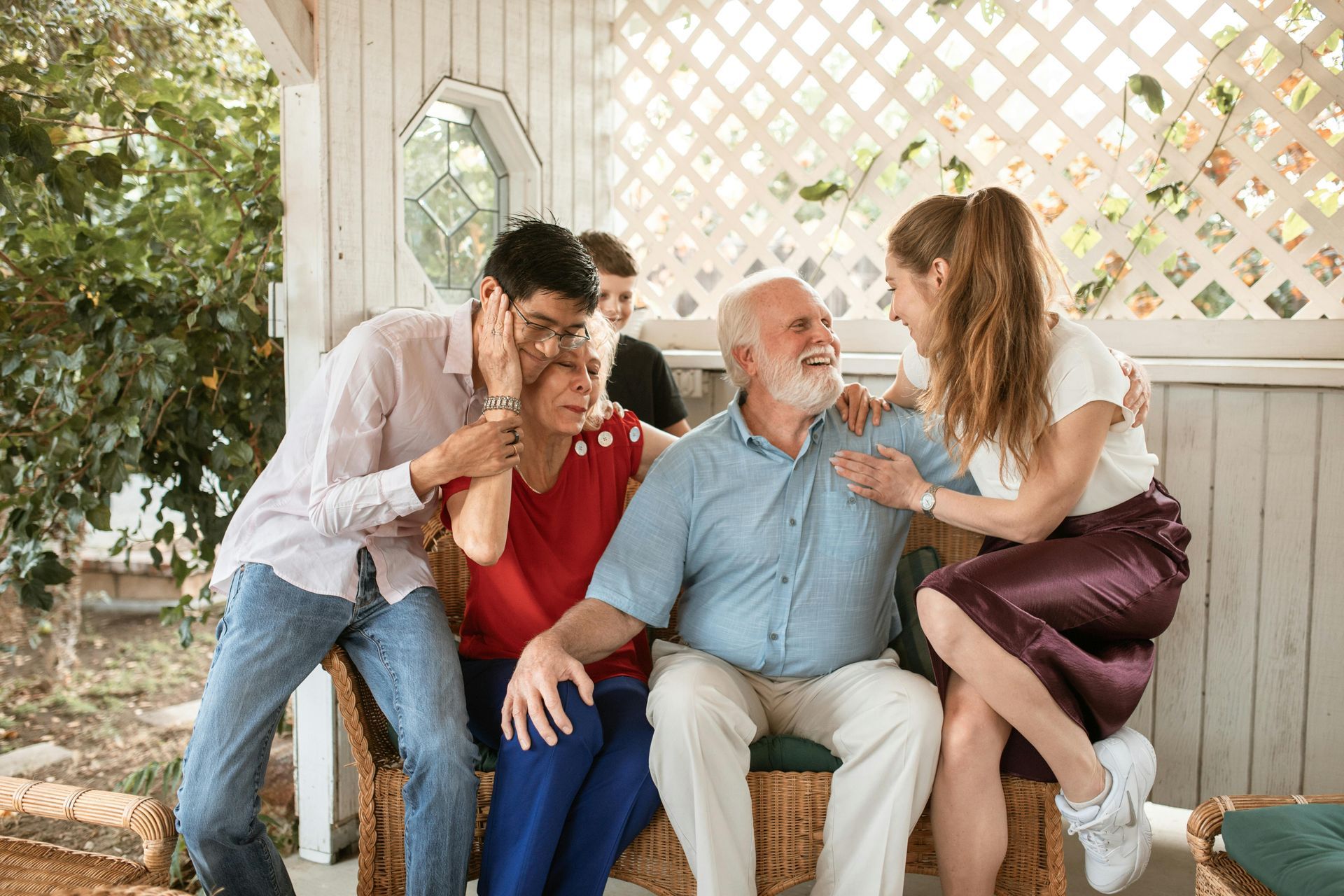The Joy (and Reality) of Family Holidays – And How Travelaire Makes It Simple
Holidays with children are among life’s most treasured chapters.

There’s a particular kind of silence that falls when the bags are unpacked, the kids are asleep, and you finally sit down with a glass of something cold on the first night of a family holiday. It’s a silence made not just of relief, but something close to triumph. You made it. Everyone’s here. And, if you’re lucky, no one’s lost a teddy or had a meltdown in a customs queue.
Travelling with children is a different kind of adventure. The good kind, mostly. It's joyful and messy and often unforgettable for all the right reasons—though sometimes, also for the wrong ones. And yet, year after year, we keep going. Because the promise of what family travel offers is too good to ignore.
This blog isn’t about ticking boxes or selling dream destinations. It’s about what makes family holidays work (and what doesn’t), how to plan them with a bit more ease, and what we’ve learned from years of helping families travel better.
It’s Not About Perfection
Let’s get this out of the way: no family holiday is perfect. There will be moments. Tiredness. Tantrums. Spilt juice on white linen. A suitcase with exactly the wrong things. The holiday you plan on paper—the one where everyone is smiling, sun-kissed and bonding over Greek salads—is only half the story.
But that doesn’t mean you can’t have a brilliant time. If anything, the best family holidays are the ones where you stopchasing perfection and start leaning into the chaos a little. The magic tends to turn up when you're not looking for it—at the beach café with unexpectedly amazing pizza, or when your kids discover a new favourite fruit in the hotel breakfast buffet.
So the first rule of family holidays? Keep it simple. Plan well. Don’t overdo it. And know that ‘good enough’ often turns out to be just right.
Choosing Where to Go
The destination you choose does matter—but maybe not in the way you think. It’s less about the Instagram appeal and more about how well it fits with your stage of family life.
If your children are under five, short flights, direct transfers and easy-to-navigate resorts can make a world of difference. For this group, places like Spain, Portugal and Greece remain favourites for good reason—family-friendly, familiar, and full of sunshine without too much fuss.
For families with slightly older children, Dubai is worth a look. Beyond the glitz, it’s surprisingly well set up for kids, with theme parks, aquariums, desert adventures and spotless beaches. If you’re thinking further afield, Thailand or Vietnam offer huge rewards for curious travellers—just plan in rest days, and go at your own pace.
The Maldives might not sound like an obvious family destination, but you'd be surprised. Many resorts go out of their way to welcome children—with dedicated clubs, shallow lagoons, and plenty of downtime for everyone.
The truth is, there’s no one-size-fits-all answer. Sometimes, the best destination is the one that gives you space. And often, families don’t need more stuff on their itinerary—they need fewer decisions, and a bit more room to just be.
How to Travel Without Losing the Plot
Even the most well-travelled parents will tell you: no amount of planning can guarantee a smooth journey. But there are definitely things that help.
Slow the pace.
Trying to see and do too much is the quickest route to tired, grumpy kids and frazzled adults. One main activity a day is usually enough. Everything else is a bonus.
Keep a flexible routine.
Children don’t stop being children just because they’re on holiday. You don’t have to replicate your home routine exactly, but it helps to anchor the day with familiar mealtimes or naps if they’re still needed.
Travel light.
The temptation to pack everything ‘just in case’ is strong. But most places—especially the ones geared up for families—can provide things like cots, highchairs or even toys. If in doubt, ask ahead.
Snacks, screens, stickers.
No judgement here. Whatever keeps the peace in airports or on long transfers is fair game. Some parents swear by sticker books, others by lollipops and downloaded TV shows. Bring what works for your kids, not what social media says you should pack.
Plan for downtime.
The hotel pool, a shady terrace, a quiet afternoon nap—sometimes, the best part of the day is the one without a plan.
Travelaire’s Role (Without the Hard Sell)
We’re not here to push resorts or wrap holidays in a bow. What we do is listen. To what you need, to what your children need, and to what will make your time away feel less like work and more like a break.
Some families come to us because they’re tired of sifting through endless hotel reviews that contradict each other. Others are first-time travellers with kids and just want someone to tell them where to start. A few are seasoned travellers who now need bigger rooms, shorter transfers, and hotels where everyone gets a bit of what they want.
We help with the practicalities—interconnecting rooms, transfers that won’t involve car seat drama, destinations that won’t leave you battling jet lag. But we also help with the big picture: where can you go that feels exciting but not overwhelming? What kind of trip will leave you coming home happy, not exhausted?
It’s not about selling holidays. It’s about solving problems you haven’t thought of yet.
So, Where Does That Leave You?
You’re probably here because you’re thinking about the next trip. Maybe you’ve got a destination in mind. Maybe you’ve got a child who’s never been on a plane. Maybe the idea of booking it all feels like one task too many.
Wherever you’re starting from, know this: family holidays can be joyful. They can be bonding, fun, surprising, restorative—even for parents. They don’t need to be perfect. But they can be thoughtful. And yes, they can be easy(ish) too.
We’ve spent years helping families take the kind of holidays they’ll talk about long after the tan fades. If you’d like help planning yours, we’re here. Not with sales scripts or pressure. Just good advice, plenty of experience, and honest recommendations based on what matters most to your family—not someone else’s.













